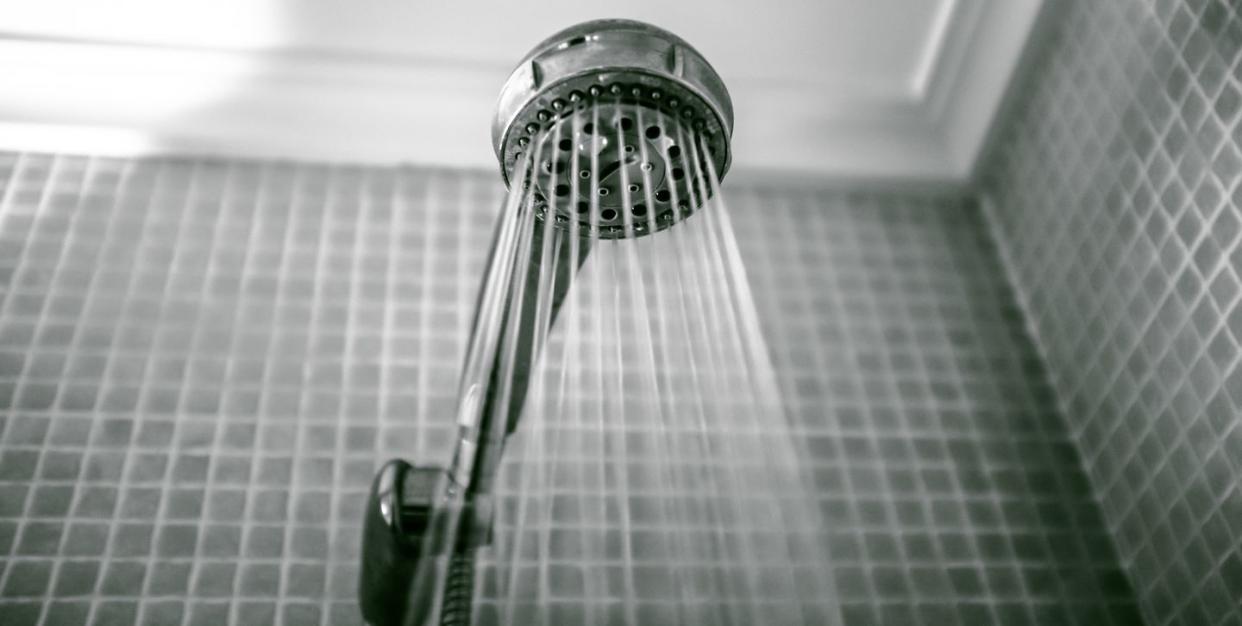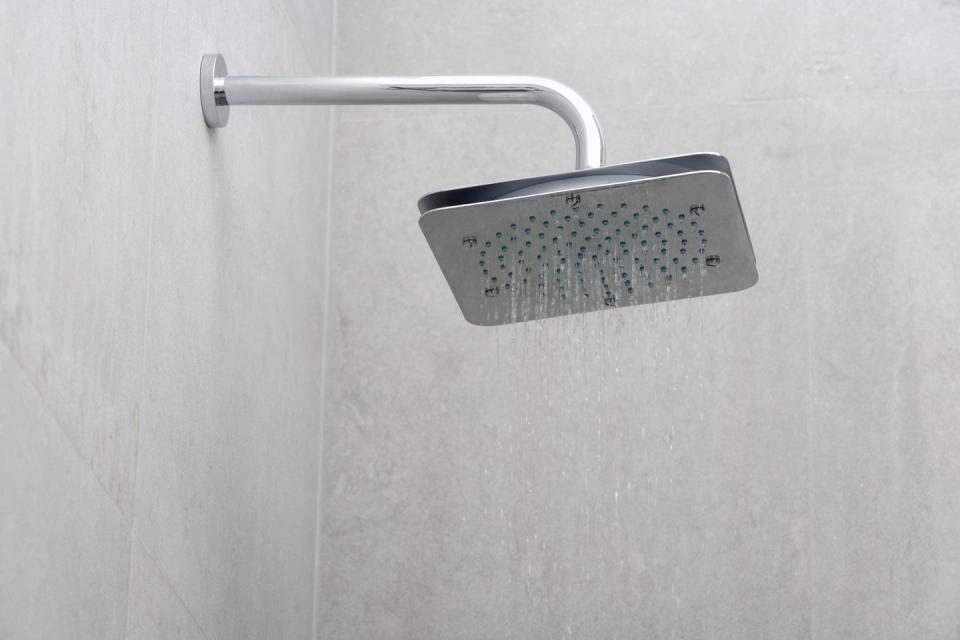Your Showerhead Is Probably Spewing Bacteria All Over Your Naked Body

Showerheads are a hotbed of bacteria, according to a new study.
Many bacteria are harmless, but scientists found traces of nontuberculous mycobacteria, which can cause lung infections.
However, not everyone exposed to the bacteria is susceptible to getting sick.
Here's some news that could make your next shower a little less relaxing: A new study found that showerheads are rife with bacteria-filled slime that could make us sick.
Showering may cleanse our bodies of sweat and dirt, but over time, our showerheads develop scum-also known as biofilm-due to the warm, wet conditions. Curious to know what was living in this biofilm, researchers at the University of Colorado Boulder collected samples from 656 households across the United States and Europe.
It turns out, showerheads are crawling with bacteria. Many aren't harmful, but the team did find traces of nontuberculous mycobacteria (NTM) in showerheads across the United States. NTM is particularly prevalent in parts of Southern California, Florida, and New York - all areas with higher reported incidences of NTM lung disease, the study authors note. They believe showerheads may transmit the disease.

What is nontuberculous mycobacteria (NTM)?
Symptoms of the infection include coughing up blood, shortness of breath, persistent coughing, fatigue and fever, according to the American Lung Association. Not everyone develops the condition after exposure to NTM, and doctors aren't sure why only some people get sick. However, those who already have lung problems, older adults and people with weak immune systems are at greater risk. The infection is treated with antibiotics, according to WebMD.
The team also found that NTM is more common in metal showerheads, as well as U.S. households that use municipal water over well water. Mycobacteria are resistant to the chlorine found in municipal water, so they have more room to grow after other the chlorine kills off other bacteria.
According to study co-author Noah Fierer, more research should be done to determine whether our water treatments could put us at risk.
"There is a fascinating microbial world thriving in your showerhead and you can be exposed every time you shower," Fierer said in a statement. "Most of those microbes are harmless, but a few are not, and this kind of research is helping us understand how our own actions-from the kinds of water treatment systems we use to the materials in our plumbing-can change the makeup of those microbial communities."
What does all this mean for you? You definitely shouldn't stop showering, but you might want to think about cleaning your showerhead every now and then. Using vinegar, which has been shown to kill many types of mycobacteria, is a good bet.
Follow House Beautiful on Instagram.
('You Might Also Like',)

